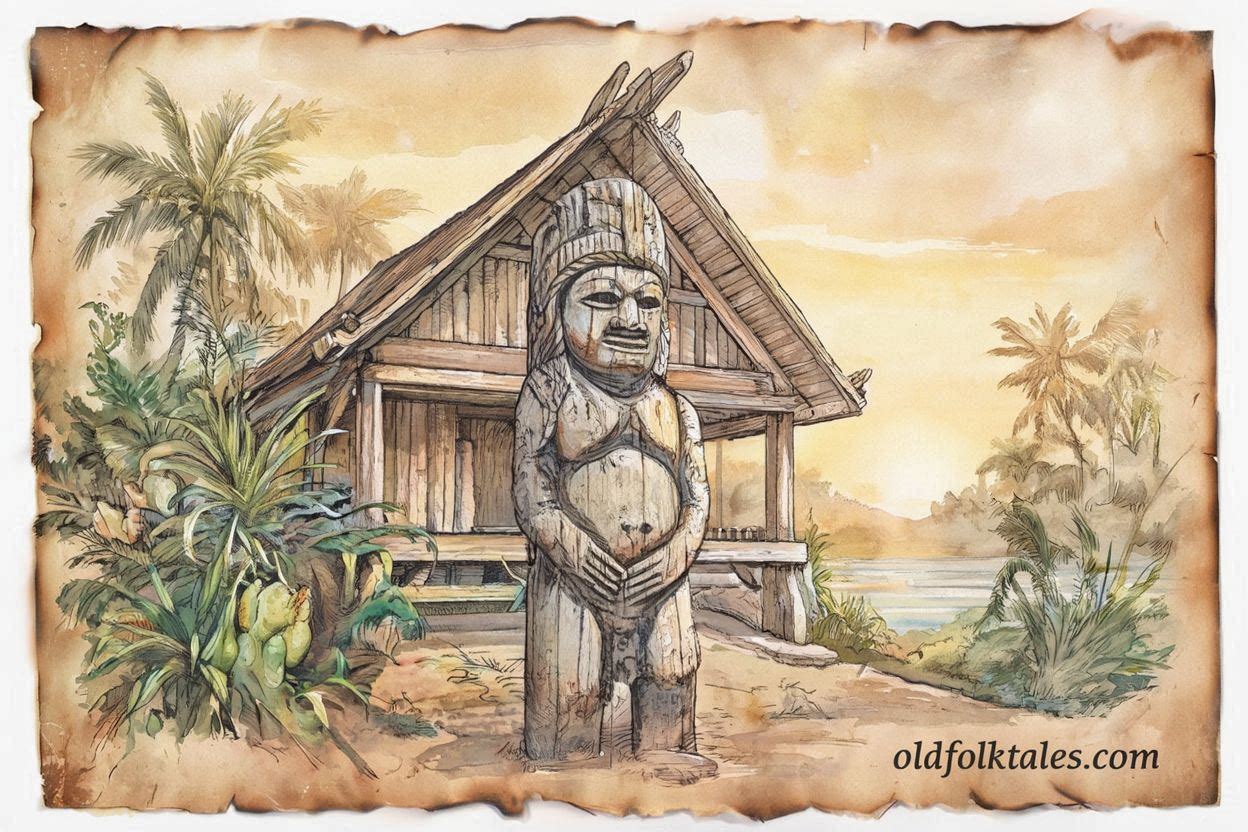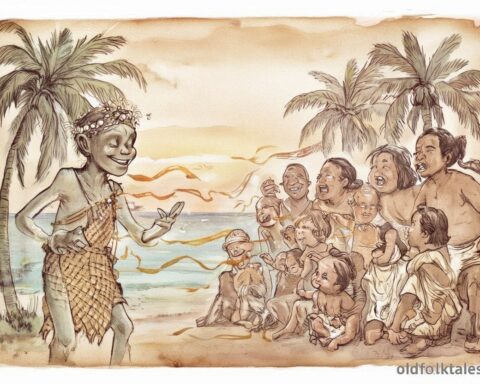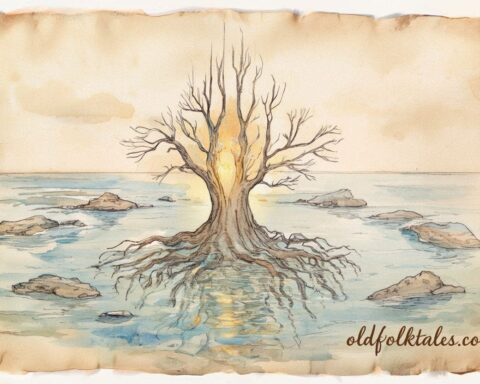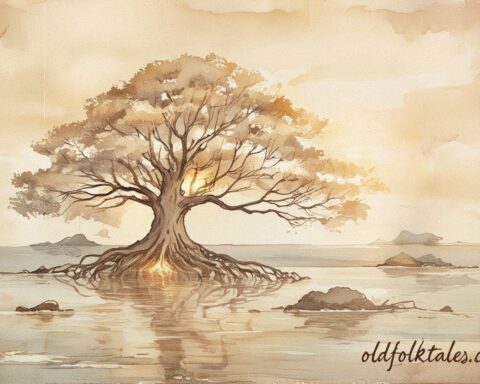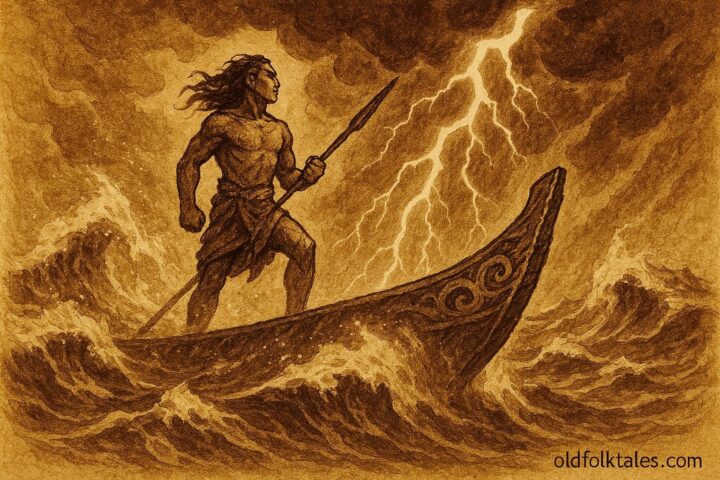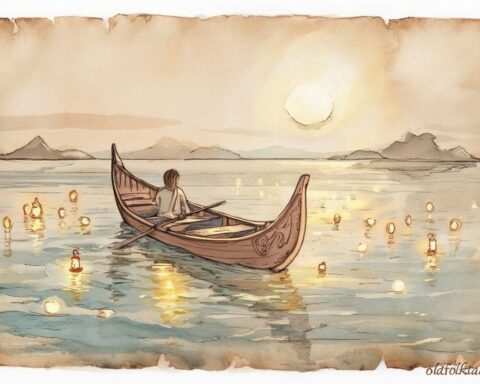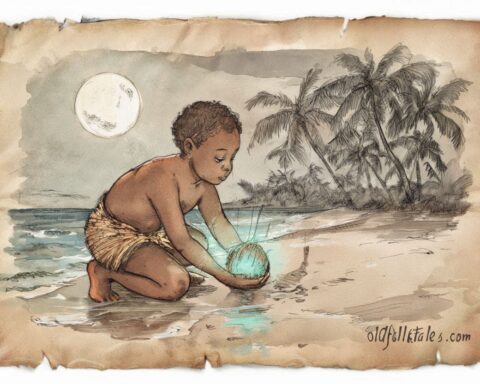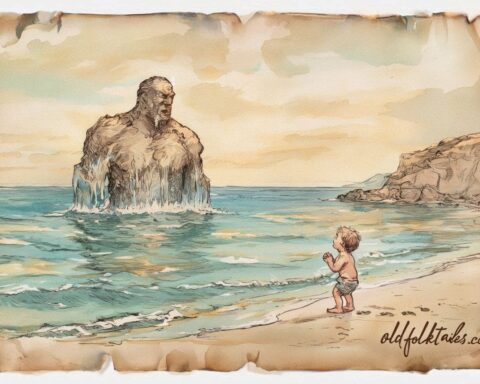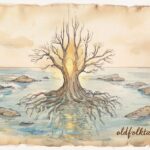Long ago, in the ancient islands of Palau, there lived a woman whose name would echo through generations, Dilukai. Her story began in the village of Airai, a place of towering trees, bright lagoons, and deep respect for the balance between land and sea. Dilukai was the daughter of a great chief, known for her radiant beauty and her kindness to all living things. Yet her most remarkable gift was not her beauty, but the strength of her spirit.
Her brother, a powerful man consumed by pride, ruled their people with cruelty. He ignored the wisdom of the elders and sought to bend all others to his will. When those who served him grew weary of his anger, they came to Dilukai and said, “Your brother has forgotten the old ways. He brings suffering upon our people and disrespects the gods. Only you, who share his blood and his heart, can restore balance.”
Dilukai listened and felt sorrow for her brother. She prayed to the spirits of the ancestors for guidance. That night, under the glow of the moon, a gentle wind swept through her home. The voice of the goddess Meduu Ribtal, mother of sustenance, whispered to her, “Child of light, you must become the guardian of your people. Stand in the place of truth and the land will live again.”
The next morning, Dilukai went to her brother’s meeting house. She stood before him and spoke calmly. “Brother, the people suffer because of your pride. Return to the path of kindness. Share what the gods have given.”
But her brother’s eyes were hard. “You are only a woman,” he said. “You have no right to speak to me of power.”
Dilukai did not waver. “The gods gave power to both man and woman. The earth cannot bear fruit without the balance of both.”
Her brother grew furious. In his rage, he ordered that she be silenced and confined, believing that without her voice the people would bow once more to him. Yet even in captivity, Dilukai’s spirit did not break. She sang songs to the sea, calling upon the ancient powers of creation and fertility. Her voice carried through the waves and into the hearts of her people, reminding them of the sacred harmony between woman and nature.
One night, as the storm clouds gathered, lightning struck the waters near Airai. The ground trembled, and the winds howled as if the ancestors themselves had awakened. When the storm passed, the people found Dilukai standing by the shore, her eyes glowing with the light of the moon. It was said that the goddess Meduu Ribtal had blessed her, giving her the strength to protect her people forever.
Her brother, humbled by the power of the storm and his sister’s endurance, fell to his knees. He saw that his strength had brought only ruin, while her courage had restored life. He begged for forgiveness, and Dilukai, with compassion, forgave him.
When Dilukai passed from the world of the living, the people feared that her protection would fade. But the village carvers, guided by dreams from the ancestors, created a wooden figure in her image and placed it at the front of the meeting house, the bai. The figure showed her standing tall, gazing out over the village, symbolizing watchfulness, protection, and fertility.
From that day, every bai in Palau carried her image upon its beams, facing the rising sun. The people believed that through her, the spirit of womanhood would guard the village, bless the land with abundance, and protect families from harm. Her carved form reminded all who entered that strength and beauty flow from the same source, and that the power to give life is the highest form of protection.
Generations passed, and the story of Dilukai continued to be told by the elders. Mothers taught their daughters her name, and carvers whispered prayers to her spirit before beginning their work. Each carving of Dilukai was a symbol of the sacred balance between men and women, earth and sea, life and spirit.
Even today, her image remains one of the most recognized symbols of Palauan heritage. To the people, she is not only a memory of the past but a living guardian watching over the islands. Her story reminds all who hear it that true power does not come from domination but from love, compassion, and the courage to stand for what is right.
Moral Lesson
The story of Dilukai teaches that true strength comes from compassion and courage. The balance between man and woman sustains life, and protection born of love endures beyond generations.
Knowledge Check
1. Who was Dilukai?
Dilukai was a woman of divine beauty and strength who protected her people and became a symbol of fertility and protection.
2. What did Dilukai’s brother do to cause suffering?
He ruled with cruelty and pride, forgetting the wisdom of the ancestors.
3. How did Dilukai protect her people?
She invoked divine strength through prayer and song, restoring harmony and life to her village.
4. What symbol was created to honor Dilukai?
Her image was carved on the beams of meeting houses as a guardian figure.
5. What does Dilukai’s carving represent?
It represents womanhood, fertility, and spiritual protection.
6. What is the moral of Dilukai’s story?
That compassion, balance, and respect bring lasting strength and harmony.
Source: Adapted from Dilukai: Spirit Figures and Symbolism in Palauan Culture by the Belau National Museum (2015).
Cultural Origin: Palauan (Palau, Micronesia)
